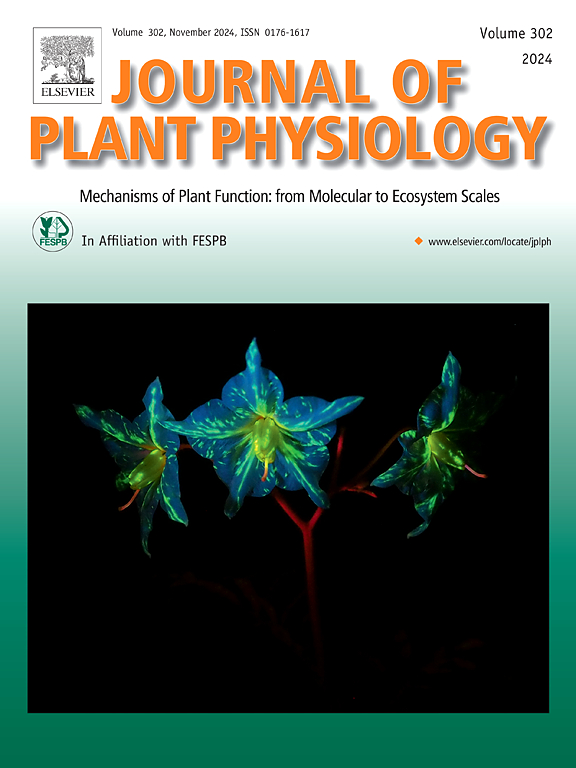Harnessing light, photoperiod and temperature for accelerated flowering in speed breeding: Mechanisms, applications and crop diversity
IF 4.1
3区 生物学
Q1 PLANT SCIENCES
引用次数: 0
Abstract
Accelerated flowering, an essential aspect of speed breeding, has become a significant tool to enhance crop improvement programs, especially in changing climates. This review examines how temperature, light quality, and photoperiod regulate flowering time across diverse crops. The mechanisms that drive these factors are being studied at the molecular, physiological, and phenotypic scales, highlighting how changes in light spectrum, photoperiod sensitivity, and temperature regimes can significantly influence flowering patterns. We emphasize the optimization of these factors in controlled environments to achieve accelerated flowering, thereby improving breeding cycles without compromising yield or plant health. The review explores the integration of these strategies into speed breeding platforms for legumes, cereals, and forage species, highlighting the challenges and potential for scaling this technology. This paper also synthesizes current knowledge and identifies understanding gaps to provide insights into strategically manipulating light quality, photoperiod, and temperature to expedite crop development and meet sustainable agriculture's demands.
利用光、光周期和温度在快速育种中加速开花:机制、应用和作物多样性
加速开花是快速育种的一个重要方面,已成为加强作物改良计划的重要工具,特别是在气候变化的情况下。本文综述了温度、光质量和光周期如何调节不同作物的开花时间。驱动这些因素的机制正在分子、生理和表型尺度上进行研究,强调了光谱、光周期敏感性和温度制度的变化如何显著影响开花模式。我们强调在受控环境中优化这些因素,以实现加速开花,从而在不影响产量或植物健康的情况下改善育种周期。这篇综述探讨了将这些策略整合到豆类、谷物和饲料物种的快速育种平台中,并强调了推广该技术的挑战和潜力。本文还综合了目前的知识,并确定了理解差距,为战略性地操纵光质量、光周期和温度提供见解,以加快作物发育和满足可持续农业的需求。
本文章由计算机程序翻译,如有差异,请以英文原文为准。
求助全文
约1分钟内获得全文
求助全文
来源期刊

Journal of plant physiology
生物-植物科学
CiteScore
7.20
自引率
4.70%
发文量
196
审稿时长
32 days
期刊介绍:
The Journal of Plant Physiology is a broad-spectrum journal that welcomes high-quality submissions in all major areas of plant physiology, including plant biochemistry, functional biotechnology, computational and synthetic plant biology, growth and development, photosynthesis and respiration, transport and translocation, plant-microbe interactions, biotic and abiotic stress. Studies are welcome at all levels of integration ranging from molecules and cells to organisms and their environments and are expected to use state-of-the-art methodologies. Pure gene expression studies are not within the focus of our journal. To be considered for publication, papers must significantly contribute to the mechanistic understanding of physiological processes, and not be merely descriptive, or confirmatory of previous results. We encourage the submission of papers that explore the physiology of non-model as well as accepted model species and those that bridge basic and applied research. For instance, studies on agricultural plants that show new physiological mechanisms to improve agricultural efficiency are welcome. Studies performed under uncontrolled situations (e.g. field conditions) not providing mechanistic insight will not be considered for publication.
The Journal of Plant Physiology publishes several types of articles: Original Research Articles, Reviews, Perspectives Articles, and Short Communications. Reviews and Perspectives will be solicited by the Editors; unsolicited reviews are also welcome but only from authors with a strong track record in the field of the review. Original research papers comprise the majority of published contributions.
 求助内容:
求助内容: 应助结果提醒方式:
应助结果提醒方式:


